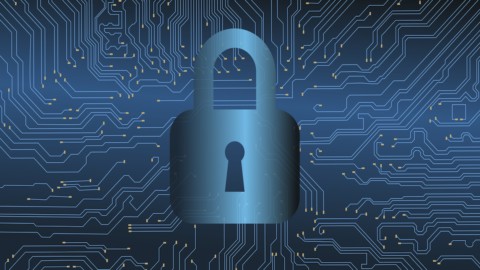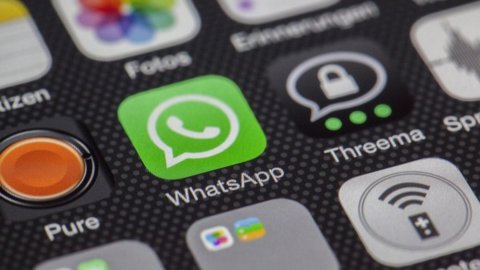It took Facebook seven years to raise its first billion dollars. It took the same amount of time for Twitter. Uber, on the other hand, employs five. Telegram, the instant messaging service founded in 2013 by brothers Nikolai and Pavel Durov, could take just 4 months. While the capital raised by Facebook, Twitter and Uber was in fiat currency, Telegram's billion will be raised in mathematical currency through an ICO (Initial Coin Offer).
This latter practice is increasingly popular, so much so that the value of ICOs in 2017 exceeded 5,5 billion dollars and 1,2 billion were collected in December alone. In the graphic the acceleration from zero to over one billion in twelve months of this brand new financial medium is impressive, something that is halfway between a classic IPO and a crowdfunding activity. Many believe that 2017 hasn't seen anything yet. Already in 2018, the fireworks will begin. Why will there be fireworks? Because ICOs are a brand new effective and cheap way to raise money for new businesses.
The regulators' dilemma
However, it is easy to imagine that there is something artificial and excessive in the ICOs that have grown spontaneously in the forest of the new economy. Telegram, which is about to raise the fateful billion, doesn't even have a prototype, it collects on a promise, on a program, it asks to buy on a project basis. It is also for this reason that regulators are looking with growing concern at this method of raising capital by start-ups and business creators. They see a high potential for fraud and harm to investors. China and South Korea have in fact banned ICOs. The cyber unit of the SEC, while recognizing the value of the instrument, has issued a large number of summonses and requests for information, also freezing operations such as in the case of the Canadian PlexCorps.
The only country that does not intend to oppose ICOs, but instead wishes to support them, putting them in order and taming them, is Switzerland. It is no secret that Switzerland aspires to become a hub of crypto-finance and ICOs in particular. A small country in Switzerland, Zug, where Ethereum is also based, is in fact becoming the global capital of mathematical money. Johann Schneider-Ammann, Minister of Economy of the Confederation, declared that Switzerland wants to become the "crypto-nation".
Switzerland and IPOs
The FINMA (Financial Market Supervisory Authority) has in fact launched a series of guidelines to facilitate an orderly, regulated and shared development of the ICO market. It shouldn't be impossible for the simple reason that the underlying blockchain technology, by its very nature, favors the elimination of any potential fraudulent action. In fact, every unit of value of the blockchain is cryptographically verified in such a way that it is impossible to exchange a value of which one does not have the legitimate and verified possession. With the blockchain there is no risk for the counterparty, there is no compensation for the transaction and no intermediary is there to make a profit. The operation involves few frictions, great transparency and a drastic reduction of costs. It's perfect as an anti-fraud technology. It is its application that carries risks. And it is precisely on this that the Swiss have focused.
The system conceived by the Swiss places ICOs in three different categories: payments, assets and utilities. In the first category, tokens (value securities) are considered transferable means of payment and as such subject to money laundering regulations. In the second, that of assets, tokens, promising returns such as dividends, interest and capital gains, are regulated as real securities. In the utility category, on the other hand, tokens are exchangeable with a specific service or application available at the time of issue, so as to maintain a clear distinction between assets and utilities. A token is therefore equivalent in all respects to a fiat or title currency and is regulated as such.
The market responded positively to the pace of the Swiss. Of the 10 most important ICOs, four took place in Switzerland and Fima has already received 100 issuance requests.
The Durov brothers
Brothers Nikolai and Pavel Durov certainly have the credentials to launch a billion-dollar ICO. Nikolai (37) is one of the biggest eggheads of new technologies. He, a developer and mathematician, won the mathematics olympiads for three consecutive years and the computer science olympiads for four years in a row. He has two degrees, one from the University of St. Petersburg, his hometown, and the other from Boon University where he was supervised by Gerd Faltings, a star mathematics recipient of the 1986 Fields Medal, the highest recognition in the field of mathematical studies. In 2017 Nikolai wrote and signed the “Telegram Open Network” white paper, the document on which the Telegram ICO is based.
Pavel Durow (34 years old) instead has an extraordinary talent as an entrepreneur. Graduated in philology in 2006, following in the footsteps of his father who was a professor of this discipline, he spent 13 years in Turin, following his parent who was a scholar of ancient Rome, where he attended compulsory school and learned Italian to perfection. In addition to Russian and Italian, he is fluent in four other languages: English, French, German and Spanish. Anarcho-libertarian, vegetarian and Taoist has many points in common with La worldview of Steve Jobs, first of all the sacredness of privacy. Unlike the co-founder of Apple, however, he does not disdain political engagement, a rather toxic activity in Russia. He has published various anarcho-capitalist manifestos that have long brought him into conflict with the dominant Putinism of today's Russia.
In 2006, together with his brother, he founded VKontakte (which became VK in 2012), which quickly became the most popular social network in Russia and the Slavic countries and one of the top five in the world. Following disputes with the Russian authorities, after the controversial presidential elections of 2013, Pavel, together with his brother, decided to leave Russia and was forced to dispose of the stake in VK sold to mail.ru under the control of the oligarch Igor Sechin, head of Rosneft and Putin's most important collaborator.
In fact stateless Pavel and Nikolai have become two nomadic entrepreneurs who, homeless, are divided between Dubai, Europe and the United States. They are traveling on a passport from Saint Kitts and Nevis, an island state in the Caribbean. The Telegram development team (the company is incorporated in the US and UK) has moved between San Francisco, New York, London, Paris, Berlin, Finland and Dubai in the last five years. Pavel's obsession with control is manic.
In the "Lunch with the FT" column of the "Life & Arts" Sunday spine of the "Financial Times", John Thornhill published a long report of his conversation with Pavel Durov over a plate of spaghetti at the Italian restaurant Quattro Passi in Mayfair in London . It's worth reading.
The Telegram Open Network (TON)
In 2013 Nikolai and Pavel Durov founded Telegram, a cloud-based instant messaging service with 200 million users. The main feature of Telegram, whose client-side APIs are in the public domain, is that of being able to establish point-to-point encrypted conversations saved on the device and therefore absolutely private and as such snooper-proof. Definitely a tribute to Pavel's personal hero, Edward Snowden, to whom Pavel also offered a job. Telegram's protocol, MTProto, was designed and written by Nikolai.
An evolution of this protocol is the Telegram Open Network, a project based on blockchain technology to which the two brothers have made variations such as to be able to say they have built a new blockchain model. Here is how Nikolai describes the TON in the cited document:
The Telegram Open Network (TON) is an open, scalable, blockchain-based network capable of handling millions of transactions per second in a user-friendly and service provider-friendly environment. Its purpose is to host applications and services. TON can be defined as a huge distributed supercomputer intended to host and provide an infinite variety of services.
TON will also be a micro-payment platform to transfer monetary values and to pay for services provided through the platform. It will also be possible to integrate the TON platform with third-party messaging services and third-party social networks so as to make blockchain technology available and accessible to ordinary users instead of a handful of cryptocurrency pioneers. All of the technology has been placed in the public domain.
Nathaniel Popper, who covers finance and technology from San Francisco for the "New York Times" and is the author of the book Digital Gold: Bitcoin and the Inside Story of the Misfits and Millionaires Trying to Reinvent Money, in the New York newspaper explains the operation in detail.
Here is the substance of the project: to bring the blockchain to the masses, outside the government's control. A project with a political and social as well as financial value. Will the flying brothers succeed in their intent? Although the Financial Times characterized the Telegram white paper as having “more abstruse jargon than Scientology textbooks,” and more drastically Charles Noyes, of Pantera Capital, branded it “600 million of tons of shit”, for the moment the market seems to believe in the project. In fact, three Silicon Valley venture capital giants such as Kleiner Perkins Caufield & Byers, Benchmark and Sequoia Capital have already announced that they are investing in the Telegram ICO. A choice that made many observers raise their eyebrows. But typically these venture-money traders get it right
So let the billion mathematical dollars come for the homeless Durov brothers.




